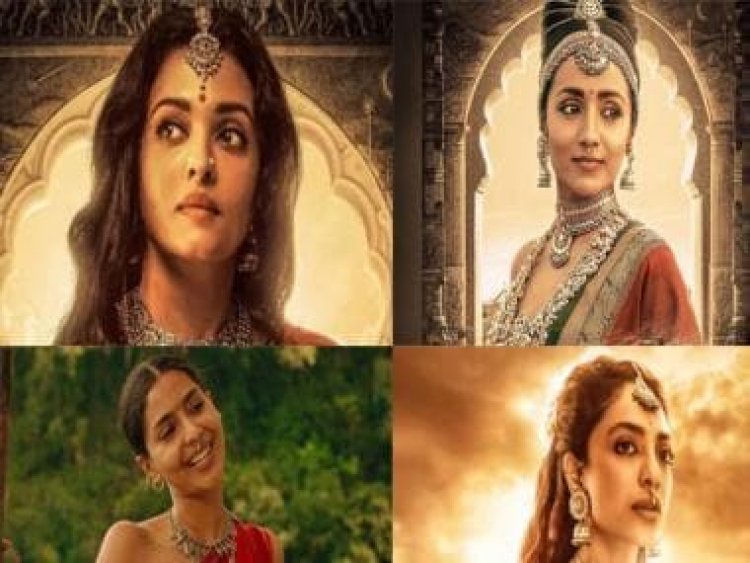The women of Ponniyin Selvan 2: Is Mani Ratnam’s adaptation feminist?
The women of Ponniyin Selvan 2: Is Mani Ratnam’s adaptation feminist?

Spoilers ahead for Ponniyin Selvan 2…
In what is a turning point for Nandini’s life in Ponniyin Selvan 2, she realizes that she was nothing but a pawn in the grand scheme of things. She was a pawn in the war waged between the Pandyas and Cholas, and so was her mother Mandakini. She was manipulated by the people who she had deemed closest to her, she was betrayed, abandoned and worse of all, made a killer of a man that she was very much still in love with. What agency did she really have in all of this then? Does her decision to exact revenge in this situation symbolise her equal status to the men around her or does the incident that became her intention mark the oppression that women continue to face even today at the hands of patriarchal society?
Nandini’s life, her character arc is one of the most intriguing in the book, and this is true for the film as well. Almost everyone who has read the book can tell you hour long tales about why Nandini is one of the most impressive characters penned by Kalki. The film too has managed to keep this intrigue alive. There is a lot buried under the surface of Nandini’s character — her continued love for Aditha Karikalan, the responsibility that she was handed over by Veera Pandian, a Pandya king slain by Aditha Karikalan, and her current status as the wife of the elder Pazhuvettarayar — and we see shades of each of these facets at different points in the film.
While the first part of the film shed light on her intellect, suave, charm and beauty, Ponniyin Selvan 2 goes beyond to explore the intention behind Nandini’s burning rage and her undying desire for revenge — all of this underlined with a hint of love that she still carries for her sweetheart from when she was young. She is probably one of the strongest female characters in the film, and she holds her own against men such as Aditha Karikalan, Arunmozhi and Vanthiya Thevan. However, does all of this make the film feminist?
On hindsight, she was a decorated plot device. One that the original author had intended to be used, and discarded. One whose purpose was to be manipulated. She was a puppet in the hands of the men. First Aditha Karikalan, who did not understand socio-political situation of his own kingdom when he presented an orphan girl as his partner, then her father Veera Pandian who hid all of his immoral deeds from her to ensure her support. All of this unintentionally, of course!
Nandini, in her final note, speaks of all the ways in which she had been manoeuvred by people who claimed to love her and that moment speaks of how women’s place in society at that time depended on the men. Nandini’s agency was awarded to her because she had seduced her husband. The film repeatedly uses terms to indicate that her beauty is dangerous, that she is power hungry, and controlling, and that she is not a woman of respectable character. At no point in the film does she get validation for her hatred.
Yes, Aditha Karikalan does heed to his mistake in the past, but not because Nandini is right in her stance against him. He puts himself at the center of all of this. He was unable to give her the one thing she asked, he was unable to forget her, and so he couldn’t get past it. Even his final decision doesn’t really think of Nandini or what she needs. He does what would assuage his guilt and give him liberation from all the pain that he had accumulated over the years since their separation.
Even while digging into the psyche of Nandini to explore the complexity of her character, the film reiterates many problematic notions about women. It is underhanded, and yet, easily swept under the carpet if one were to choose so. There is a duality in the film that straddles the line between patriarchy and self-awareness. There isn’t obvious glorification of certain patriarchal practices like we have seen in many other Indian period films. In Ponniyin Selvan 2, things are a lot more subtle.
Nandini is not the only female character, so the fact that the other women become nothing but a feeble presence undermines the purpose of this film. Poonguzhali and Vaanathi do not even register as key characters in the film. If they did, maybe things could have been better. Vaanathi’s charm, the allure that one could have felt for Poonguzhali — all of it lost.
Ponniyin Selvan 2, originally written by Kalki is a self-aware book, and so when one speaks of feminism in historic literature, we must also consider the perception of the author at the time that the book was penned. The book is about upper caste men waging wars in the field while women wage wars in the courtroom. There is casteism, and there is sexism. However, the film adaptation of this literary work could have taken the current times into consideration. Sure, this Tamil epic is much respected, but what is the point of bringing such heavy characters to life on screen, if we not paint the women, men and other characters with the most vibrant colours that also reflects evolution of society?
Priyanka Sundar is a film journalist who covers films and series of different languages with a special focus on identity and gender politics.
Read all the Latest News, Trending News, Cricket News, Bollywood News, India News and Entertainment News here. Follow us on Facebook, Twitter and Instagram.
What's Your Reaction?



























































